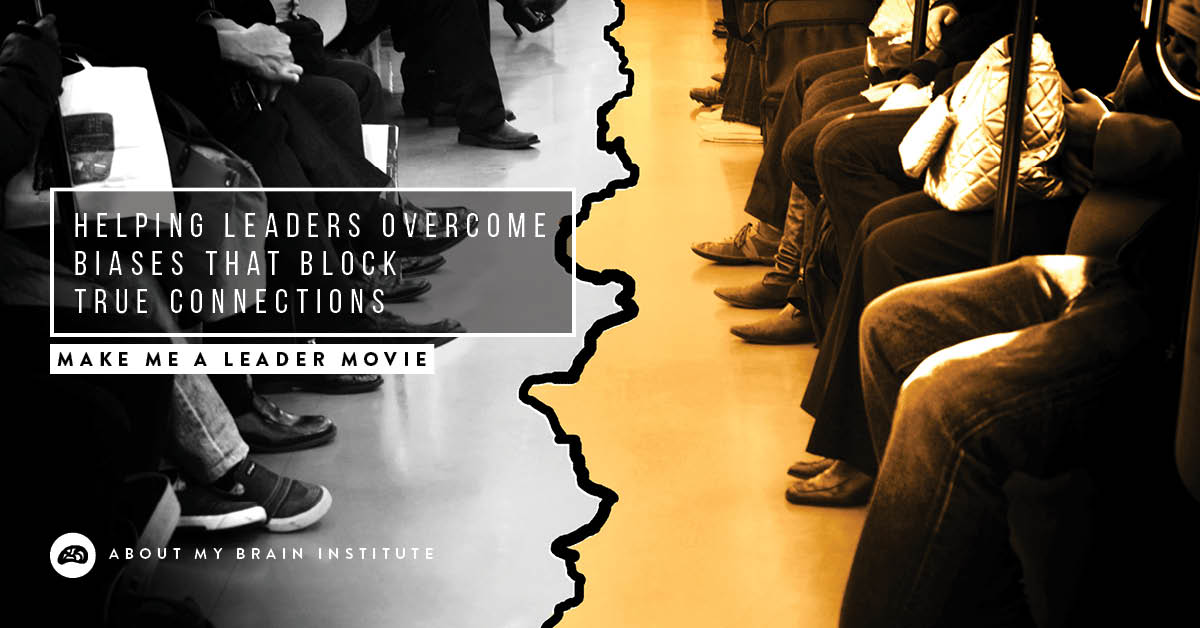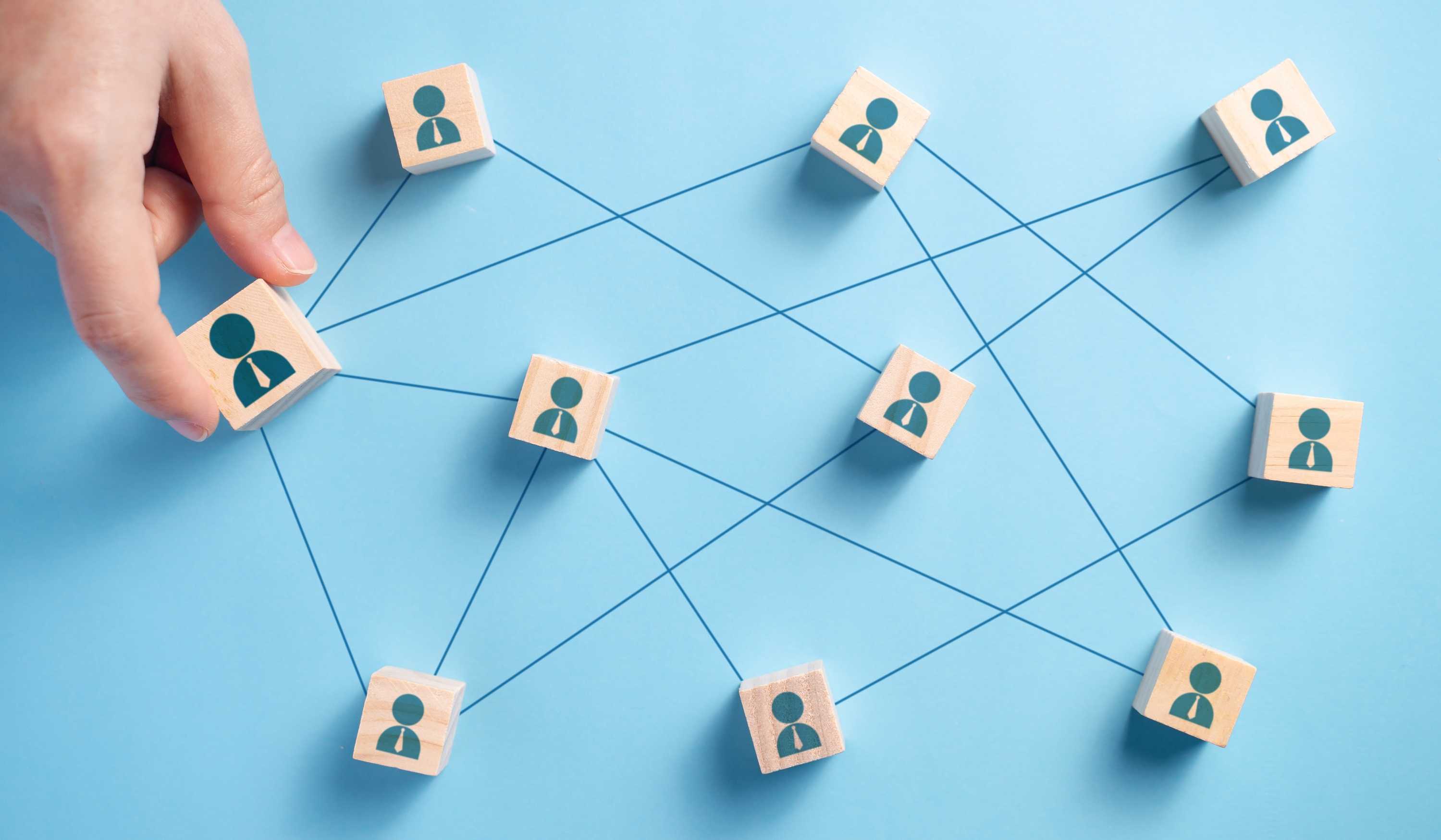How Does The Brain Determine Right From Wrong?
It is thought that our brains can consciously process forty frames of information in one single second. However, the unconscious brain can process around 1.2 million frames of information in that same second. Scientists believe these unconscious bits of information actually drive our decision-making, and we use the fewer conscious bits to help us rationalise those decisions. Knowing that our decisions are being driven from a behind-the-scenes mechanism, how can we improve our decision-making?
In a recent TEDx talk, Kimberly Papillon spoke about how neuroscience can help fair-minded people make better decisions about other people despite their implicit or unconscious biases. She discussed several different studies in her talk, including one conducted at Harvard University.1
In the experiment, volunteers were told they would have an email conversation with a person in a room next door. The people answering the emails gave the same answers from a list of questions the volunteers were told to ask, including math and verbal SAT scores. Two email addresses were given to the volunteers, one beginning with ‘Amy’ and one beginning with ‘Chen’. Volunteers were also told they would be having an email conversation with an Asian-American woman named Amy Chen beforehand.
So what happened in the study? Scientists asked the volunteers if they remembered the math scores from both email addresses. Participants recalled the math SAT scores to be higher than they were originally given for the ‘Chen’ email address, while the scores from the ‘Amy’ address were lower than originally given in math. They flipped for verbal scores, with ‘Amy’ being given artificially high scores and ‘Chen’ receiving artificially lower scores.2
Remember, students were told who athey were emailing ahead of time, and they knew both email addresses went to the same person. However, implicit bias was clearly shown in this experiment. What part of the brain is responsible for decision-making, and how can we help make fair decisions that overcome our implicit bias?
The Parts of the Brain Involved in Making Decisions
Implicit bias is unconscious, and this means we aren’t actively processing what we are thinking and responding to. Knowing how our brains make choices can help us overcome biases we have developed as we have grown up and experienced the world. Our brains are incredibly complex, and although we understand what many of the parts do, we still don’t know how some of these areas interact. A brief explanation of how we make decisions includes these brain regions:
- Frontal lobe: The largest lobe of the brain. Located in the front of the head, the frontal lobe is involved in personality characteristics, decision-making and movement.
- Hippocampus: Embedded deep within the temporal lobe, the hippocampus plays a major role in learning and memory. The bits of memory stored here likely play a role in implicit biases.
- Amygdala: Also located deep inside the temporal lobes, the amygdalas are responsible for decision-making, emotional responses, and memory processing. Our ‘flight or fight’ reflex originates in the amygdala.
A healthy brain means these structures (and many others) are working in unison to help us process information, recall information and memories and use internal and external factors to help us make good decisions. A study published in Neuron found that specific parts of the decision-making process were altered in people suffering from mental illnesses. Impairments within the parts of the brain or the pathways connecting them could impact how we make choices.3
“We all have cultural bias, racial bias. One of the difficult things around this subject matter is to deny that we have places we go to subconsciously, and unless you consciously decide that that’s wrong and you’ve got to do something about it, especially if you’re in a position of power, it won’t change. ”
- David Oyelowo
Am I Making the Right Decisions?
To improve performance, we must be making good decisions in business. Leaders have a responsibility to make ethical decisions that could impact a great number of people. But, how do we know if our decisions are good ones? Are our implicit biases leading the way, or are we using our brains to overcome these internal messages and actually make good choices?
It’s normal to experience fear before, during and after making a significant decision. Fear will push us to go past our norms and boundaries and embrace ideas that may seem unnatural at first. Cognitive dissonance is also a consequence of making choices, and breaking away from deeply ingrained thinking takes courage. Realising that our past beliefs do not have an ethical footing means we are ready to make decisions despite those biases.
On a more positive note, making good decisions will increase confidence as you are reminded that you can make important decisions and that the outcomes will often meet or exceed expectations. It doesn’t mean everything we do will always be perfect, but it means we are using our maximum potential to ensure maximum performance. However, this process is never perfect. We can continually improve, and we should always take the time to ask if we are making the right decision--or not.
Citations:
- Papillon K. The Neuroscience of Decision-Making: Are we Foul or Fair, https://www.youtube.com/watch?v=aCWYkZ5i-gE (2019).
- Knowledge@SMU. Asian maths whizz and talkative females: how stereotypes can actually boost performance. Knowledge@SMU, https://ink.library.smu.edu.sg/ksmu/111 (2009).
- Hathaway B. How the brain helps us make good decisions — and bad ones, https://news.yale.edu/2019/06/25/how-brain-helps-us-make-good-decisions-and-bad-ones (2019, accessed 17 October 2021).
- i4 Neuroleader (353)
- Leadership & Culture (325)
- Brain Health & Wellbeing (202)
- Innovation (97)
- Performance (85)
- Our News (80)
- Collaboration (68)
- Agility (53)
- Practitioner Stories (44)
- In The Press (36)
- Make Me A Leader (33)
- Balance (31)
- Integration (30)
- Imagination (29)
- Awareness (23)
- Brain-Friendly Channel (22)
- Communication (22)
- Curiosity (21)
- Inspiration (19)
- Intuition (19)
- Attitude (17)
- Courage (16)
- Adaptability (14)
- Case Studies (14)
- Drive (14)
- Generosity (13)
- Brain-Friendly Leadership (11)
- Ethics (9)
- Mental Readiness (9)
- Influence (8)
- Retreat (6)
- Brain-Friendly Leadership (1)
- Oracle Cards (1)
- 1 April 2025 (1)
- 1 March 2025 (9)
- 1 February 2025 (3)
- 1 September 2024 (4)
- 1 July 2024 (2)
- 1 June 2024 (6)
- 1 May 2024 (2)
- 1 April 2024 (3)
- 1 March 2024 (1)
- 1 November 2023 (1)
- 1 August 2023 (1)
- 1 July 2023 (2)
- 1 June 2023 (2)
- 1 May 2023 (4)
- 1 April 2023 (2)
- 1 March 2023 (7)
- 1 February 2023 (4)
- 1 January 2023 (1)
- 1 September 2022 (1)
- 1 May 2022 (3)
- 1 April 2022 (1)
- 1 March 2022 (5)
- 1 February 2022 (4)
- 1 January 2022 (4)
- 1 December 2021 (2)
- 1 November 2021 (4)
- 1 October 2021 (3)
- 1 September 2021 (6)
- 1 August 2021 (1)
- 1 April 2021 (1)
- 1 December 2020 (2)
- 1 November 2020 (1)
- 1 September 2020 (1)
- 1 August 2020 (1)
- 1 July 2020 (3)
- 1 June 2020 (4)
- 1 May 2020 (3)
- 1 April 2020 (4)
- 1 March 2020 (6)
- 1 February 2020 (4)
- 1 January 2020 (2)
- 1 December 2019 (3)
- 1 November 2019 (3)
- 1 October 2019 (5)
- 1 September 2019 (4)
- 1 August 2019 (4)
- 1 July 2019 (4)
- 1 June 2019 (5)
- 1 May 2019 (9)
- 1 April 2019 (9)
- 1 March 2019 (8)
- 1 February 2019 (7)
- 1 January 2019 (8)
- 1 December 2018 (5)
- 1 November 2018 (10)
- 1 October 2018 (16)
- 1 September 2018 (9)
- 1 August 2018 (10)
- 1 July 2018 (9)
- 1 June 2018 (8)
- 1 May 2018 (9)
- 1 April 2018 (9)
- 1 March 2018 (9)
- 1 February 2018 (8)
- 1 January 2018 (8)
- 1 December 2017 (6)
- 1 November 2017 (9)
- 1 October 2017 (9)
- 1 September 2017 (8)
- 1 August 2017 (10)
- 1 July 2017 (8)
- 1 June 2017 (8)
- 1 May 2017 (9)
- 1 April 2017 (8)
- 1 March 2017 (6)
- 1 January 2017 (3)
- 1 December 2016 (4)
- 1 November 2016 (5)
- 1 October 2016 (4)
- 1 September 2016 (2)
- 1 August 2016 (4)
- 1 July 2016 (4)
- 1 June 2016 (2)
- 1 May 2016 (3)
- 1 April 2016 (3)
- 1 March 2016 (7)
- 1 February 2016 (2)
- 1 January 2016 (5)
- 1 December 2015 (2)
- 1 November 2015 (2)
- 1 October 2015 (4)
- 1 September 2015 (2)
- 1 August 2015 (2)
- 1 July 2015 (1)
- 1 June 2015 (3)
- 1 May 2015 (4)
- 1 April 2015 (5)
- 1 March 2015 (3)
- 1 February 2015 (3)
- 1 January 2015 (3)
- 1 December 2014 (3)
- 1 November 2014 (3)
- 1 October 2014 (3)
- 1 September 2014 (5)
- 1 August 2014 (4)
- 1 July 2014 (5)
- 1 June 2014 (3)
- 1 May 2014 (1)
- 1 March 2014 (1)
- 1 December 2013 (2)
- 1 November 2013 (1)
- 1 July 2013 (1)
- 1 June 2013 (1)
- 1 May 2013 (3)
- 1 April 2013 (1)
- 1 March 2013 (2)
- 1 February 2013 (1)
- 1 January 2013 (2)
- 1 November 2012 (1)
- 1 October 2012 (1)
- 1 September 2012 (1)
- 1 August 2012 (2)
- 1 July 2012 (1)
- 1 June 2012 (1)
- 1 May 2012 (2)
- 1 April 2012 (1)
- 1 February 2012 (1)
- 1 January 2012 (1)
- 1 November 2011 (1)
- 1 October 2011 (3)
- 1 September 2011 (2)
- 1 July 2011 (1)
- 1 June 2011 (1)
- 1 May 2011 (1)
- 1 April 2011 (1)
- 1 March 2011 (1)
- 1 February 2011 (2)
- 1 January 2011 (4)
- 1 December 2010 (4)
- 1 November 2010 (3)
- 1 October 2010 (5)
- 1 September 2010 (4)
- 1 August 2010 (4)
- 1 July 2010 (3)
- 1 June 2010 (4)
- 1 May 2010 (7)
- 1 April 2010 (5)
Subscribe by email
You May Also Like
These Related Stories

Helping Leaders Overcome Biases That Block True Connections

Increase Agility by Keeping a Dream Journal




No Comments Yet
Let us know what you think